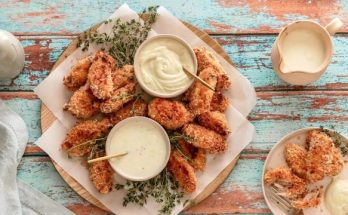It might not be trending as a ‘superfood’ on social media, but whole grains could just be one of the most underrated nutritional powerhouses in your diet. On this International Whole Grain Day on 19th November, FUTURELIFE® is celebrating these hidden gems of everyday health.
Whole grains are cereal grains that retain all three parts of the kernel: the bran (fibre-rich outer layer), the germ (nutrient-dense core), and the endosperm (starchy interior). This structure provides fibre, vitamins, minerals, and energy for overall health. Unlike refined grains, which lose the bran and germ during processing, whole grains maintain these benefits. Examples include wheat, oats, barley, brown rice, rye, and maize – the foundation of foods like whole-wheat bread, oatmeal, brown rice, and whole-grain cereals.
The Science-Backed Benefits
According to the South African Food-Based Dietary Guidelines and the Heart and Stroke Foundation South Africa, whole grains deliver a powerful nutritional punch. They’re packed with dietary fibre, B vitamins, antioxidants, and essential minerals like iron, zinc, magnesium, and selenium.
Their high fibre content supports healthy digestion and helps regulate blood pressure, while also contributing to lowering LDL (“bad”) cholesterol levels, a key factor in cardiovascular health. Whole grains also promote satiety, helping you feel fuller for longer, which can support weight management goals when part of a balanced diet.
Certain grains like barley and oats contain beta-glucan, a soluble fibre that has been shown to aid heart health. Research also suggests that regular whole grain consumption may be associated with reduced risk of type 2 diabetes and certain digestive conditions. It is important to note, though, that whole grains are only one component of a healthy lifestyle, not a standalone solution.
Old Wisdom, Modern Nutrition
Whole grains have sustained civilisations for millennia, yet despite their proven benefits, many people still fall short of recommended intake levels. The World Health Organisation suggests that they should form a significant part of daily carbohydrate consumption, but in today’s fast-paced world, convenience foods and refined grains often take their place.
“At FUTURELIFE®, we’ve thoughtfully incorporated whole grains into many of our products, from Bran and Barley cereal to Smart Instant Oats or Smart Food Wheat cereal and oat bars, not as a trend, but as a cornerstone of our smart nutrition philosophy. Our goal is to make whole grains accessible, delicious, and easy to incorporate into busy South African lifestyles, whether that’s through our breakfast cereals, bars, or nutritional supplements.”
Small Swaps, Big Impact
If you’re thinking that you are going to have to break up with your favourite foods, no need! Incorporating more whole grains doesn’t require a dietary overhaul. Simple substitutions can make a meaningful difference.
Here are a few tasty whole-grain changes:
- Choose brown rice instead of white
- Opt for whole-wheat or low-GI, seed bread over white or brown bread
- Start your day with oats or whole-grain cereal
- Snack on popcorn (a whole grain!) or a FUTURELIFE® Smart Oats Energy Bar instead of refined crackers
- Add quinoa or barley to soups and salads
As we mark International Whole Grain Day, it’s worth remembering that nutrition doesn’t have to be complicated. Sometimes the most powerful health choices are the simplest ones, and whole grains are a perfect example. Whether it’s a bowl of oats in the morning, a lunchtime quinoa salad, or an evening stir-fry with brown rice, these simple choices offer a straightforward, science-backed way to nourish your body with real, lasting benefits.




